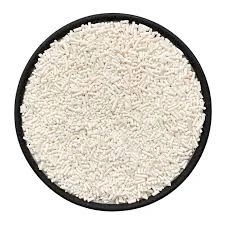
Exploring the Uses and Effects of Preservatives 202, 202, and 211 in Food Safety
Understanding Preservatives E202 and E211
Preservatives are substances added to food and other products to prevent spoilage and extend shelf life. Among the many preservatives used in the food industry, E202 (Potassium Sorbate) and E211 (Sodium Benzoate) are two of the most common. Both have unique properties, uses, and safety profiles that merit closer examination.
What are E202 and E211?
E202, or Potassium Sorbate, is a salt derived from sorbic acid, which is a natural compound found in some fruits. It is primarily used to inhibit the growth of mold, yeast, and some bacteria in various food products, especially in baked goods, cheeses, and beverages. Its effectiveness is particularly notable in low pH environments, making it a popular choice within acidic foods.
E211, or Sodium Benzoate, is the sodium salt of benzoic acid. It is effective against bacteria, yeast, and fungi and is commonly used in acidic foods and drinks such as soft drinks, pickles, and jams. Sodium benzoate works by inhibiting the growth of microorganisms by limiting their ability to metabolize.
Mechanism of Action
Both E202 and E211 function by disrupting the cellular membranes of microorganisms, thereby inhibiting their growth and reproduction. Potassium Sorbate does this by interfering with the energy production processes within the cell, while Sodium Benzoate alters the pH and creates an environment that is less favorable for microbial growth. Their effectiveness is greatly influenced by factors such as concentration, pH levels, and temperature.
preservatives 202 211

Safety and Regulations
The safety of food preservatives is a critical concern for consumers and regulatory agencies alike. Both E202 and E211 are generally recognized as safe (GRAS) by the Food and Drug Administration (FDA) and are approved for use in many countries worldwide. However, some individuals may experience sensitivities or allergic reactions to these compounds, leading to discussions regarding their widespread use.
While studies indicate that these preservatives are safe at recommended levels, excessive consumption may pose health risks. High doses of Sodium Benzoate, particularly when combined with ascorbic acid (vitamin C) under heat, can generate benzene, a known carcinogen. This potential risk has prompted some food manufacturers to reevaluate and reduce the use of these preservatives in certain products.
Practical Applications
In practical applications, both E202 and E211 are favored for their effectiveness and stability. They help enhance food safety and extend shelf life, contributing to reduced food waste. In the baking industry, for example, Potassium Sorbate is often utilized to maintain the freshness of bread and cakes. Similarly, Sodium Benzoate is common in carbonated beverage production, ensuring that drinks remain free from spoilage during their shelf life.
Conclusion
E202 and E211 are essential tools in the arsenal of food preservation. Their ability to extend shelf life and prevent spoilage has made them staples in the food industry, contributing to food safety and waste reduction. While they are generally recognized as safe, ongoing research and consumer awareness regarding food additives will continue to shape their use in the marketplace. As always, informed choices about food consumption, including understanding the ingredients and preservatives used, can empower consumers toward healthier eating habits.
-
Buy High-Quality Trichloroisocyanuric Acid for Sale | TCCA 90% SupplierNewsAug.30,2025
-
Pure Sodium Dichloroisocyanurate Dihydrate | Powerful DisinfectantNewsAug.29,2025
-
Industrial Chemicals: Quality & Purity for Every IndustryNewsAug.28,2025
-
Nitrile Rubber Honoring Strict Production StandardsNewsAug.22,2025
-
Aspartame Ingredients Honoring Food Safety ValuesNewsAug.22,2025
-
Fertilizer for Balanced Plant NutritionNewsAug.22,2025
-
Cyanide Gold Processing with High Purity AdditivesNewsAug.22,2025
Hebei Tenger Chemical Technology Co., Ltd. focuses on the chemical industry and is committed to the export service of chemical raw materials.
-

view more DiethanolisopropanolamineIn the ever-growing field of chemical solutions, diethanolisopropanolamine (DEIPA) stands out as a versatile and important compound. Due to its unique chemical structure and properties, DEIPA is of interest to various industries including construction, personal care, and agriculture. -

view more TriisopropanolamineTriisopropanolamine (TIPA) alkanol amine substance, is a kind of alcohol amine compound with amino and alcohol hydroxyl, and because of its molecules contains both amino and hydroxyl. -

view more Tetramethyl Thiuram DisulfideTetramethyl thiuram disulfide, also known as TMTD, is a white to light-yellow powder with a distinct sulfur-like odor. It is soluble in organic solvents such as benzene, acetone, and ethyl acetate, making it highly versatile for use in different formulations. TMTD is known for its excellent vulcanization acceleration properties, which makes it a key ingredient in the production of rubber products. Additionally, it acts as an effective fungicide and bactericide, making it valuable in agricultural applications. Its high purity and stability ensure consistent performance, making it a preferred choice for manufacturers across various industries.





